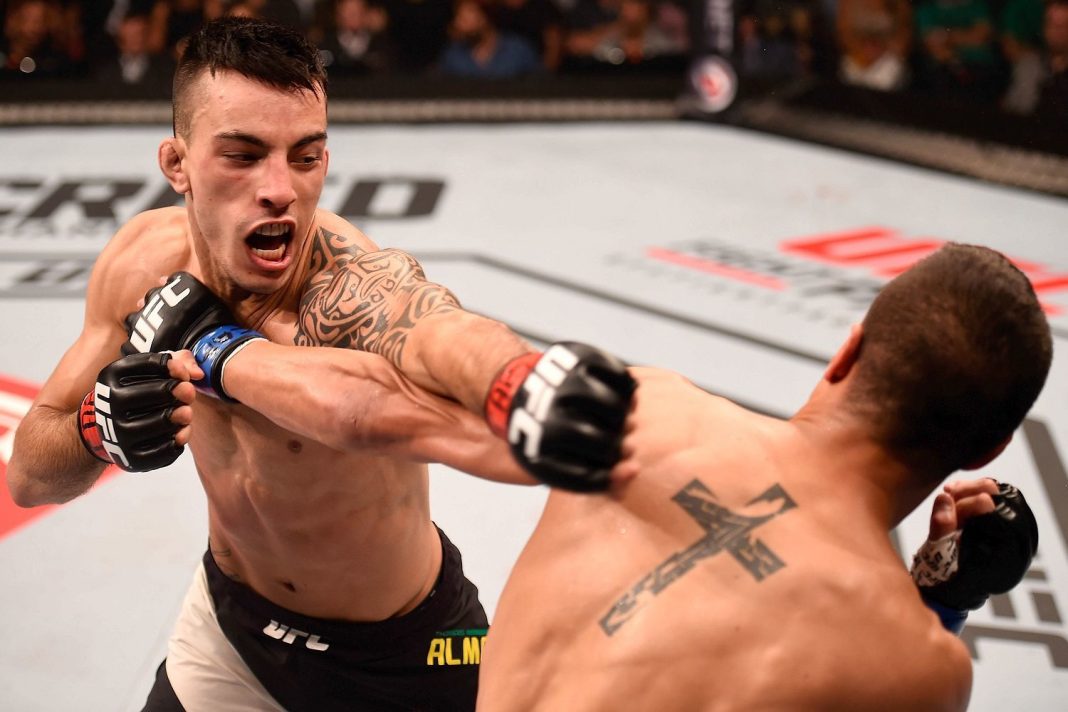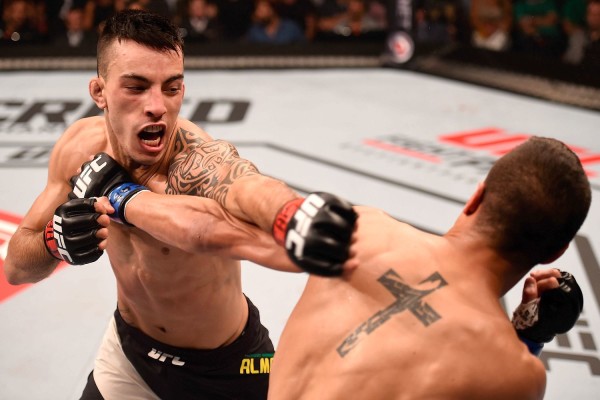
 As the largest MMA organization in the world, the UFC is in a great position to enjoy huge profits—and huge amounts of criticism. Whether this criticism is warranted or not will depend on which type of fan is asked, as well as the specific issue at hand. Certainly, though, the company goes to great lengths to try and improve the general opinion around it; a hated entertainment company (of the UFC’s nature) will likely be between a rock and a hard place in terms of profitability and fans.
As the largest MMA organization in the world, the UFC is in a great position to enjoy huge profits—and huge amounts of criticism. Whether this criticism is warranted or not will depend on which type of fan is asked, as well as the specific issue at hand. Certainly, though, the company goes to great lengths to try and improve the general opinion around it; a hated entertainment company (of the UFC’s nature) will likely be between a rock and a hard place in terms of profitability and fans.
The fact that public-aggravating controversy isn’t able to generate profits for the UFC (meaning that a negative opinion, held by the general population regarding the UFC itself, would be harmful to the business side of things) once again means that it’s in the organization’s best interest to maintain (or try to maintain) a generally favorable public reputation. This begs the question: has the UFC’s reputation gotten better in 2015? Were the efforts to maintain and further this public opinion successful?
In short, the UFC’s reputation hasn’t gotten better this year. And, there’s a good chance that these implemented marketing practices were at least semi-successful; without them, public opinion would likely be worse. Fans who dispute this may need to reflect upon every negative occurrence that the year has held for the company (not all will be mentioned, and it is similarly true that each some—especially the Reebok deal—were entirely the doing of the organization).
First, the widely publicized and commonly criticized Reebok partnership that the organization unveiled hasn’t done any (non-financial) favors for the UFC.
Fans and fighters alike were quick to denounce the deal. Under it, fighters are no longer able to secure their own fight-night sponsorships, and must wear Reebok gear at the time of weigh-in and the bout. From there, they receive a base payment calculated from the number of Zuffa fights that they have had, as well as an additional payment for “Fight Kit” sales. Fight Kits are the fighters’ aforementioned customized and unique uniforms that they are required to wear to the Octagon.
These uniforms simply haven’t been very successful, to this point—with objectively good reason. First, fighters were frustrated to learn of the low payouts that they’d receive from each Fight Kit sold (especially as many athletes were losing a good deal of money from the fight time payouts, based upon the number of bouts that they’ve had under the Zuffa banner). Although a few different figures have been suggested as the amount that the fighters receive for each of their sold Fight Kits, none of the figures were flattering. Fans were also frustrated with the Kits, as they cost no less than $80 each. The kits are also blandly designed, according to many (it’s hard to dispute this), and featured an unprecedented number of launch-time mistakes and errors (who could forget “Giblert Melendez”), which didn’t help things.
In addition to the entire Reebok fiasco, the UFC has been nailed with a plethora of “fighter abuse” claims—as well as a class-action lawsuit. Whether these allegations are true or not has yet to be proven in court, and opinions regarding the matter will depend on the individual. However, it’s undeniably true that the UFC hasn’t been positively affected by these allegations, regardless of the court case outcome.
Several occurrences which were outside of anyone’s control (besides the offenders) also had a negative impact on the UFC. Coincidently enough, when former UFC fighter (and then-Bellator signee) War Machine (Jon Koppenhaver) assaulted his ex-girlfriend, Christy Mack, there was an incredible negative backlash towards the UFC. A rare example of when it’s undesirable to be the largest company in a particular sphere, the UFC faced a great deal of (unwarranted) criticism for the terrible crime. Neither they nor Bellator (his employer at the time of the assault) were at fault here—the only guilty party was Koppenhaver himself.
Despite this truth, there began to be talks—and large-scale “reports”—about the commonality of violent individuals who “fight UFC”. Certainly, some undesirable and violent individuals compete in the sport—just as undesirable and violent individuals exist in society— but there is by no means an epidemic of violence in MMA. The “MMA fighters” surveyed were largely unprofessional and unsuccessful bums looking for a paycheck (and these same bums are likely to abuse women and commit other crimes). How many MMA athletes can one truly recall being criminally tried for domestic abuse? The answer is simply not many, at any partially professional level of the sport and above.
Moreover, the same study could have certainly been applied to boxing, with likely more devastating research results. But, as HBO has an incredibly large financial interest in the sweet science (they may be inconvenienced by the reminder that their highly regarded associate and top-earner, Mayweather Jr., has been found guilty of assault and battery against women on multiple occasions), a study like this would never happen. While this is perhaps slightly off-topic, the points to take away are that this particular study is nothing more than a well-devised ploy to draw additional attention to an “epidemic” that doesn’t exist, and that the UFC was negatively impacted. Fans know that both the UFC and Bellator have a zero-tolerance policy in regards to criminal abuse, assault, or any other person-harming crime.
But the organization wasn’t very heavily impacted by this or any of the other negative publicity. That’s what’s significant in all of these criticisms and unfortunate occurrences—that the UFC has maintained a steady (and improving, in some areas) viewership.
It’s impossible to say if the organization’s reputation has gotten better or worse throughout the year with a single, definitive yes or no answer; any company of the UFC’s scale is and will be judged by too many different groups, organizations, and individuals to keep track of.
It’s important to note, once again, that the viewership and sales numbers have continued on a positive trajectory; the company’s reputation, largely, couldn’t have gotten all that much worse in a year with this sort of numerical—and popular culture-related—success. The year has demonstrated that the UFC can not only deal with public-relations adversity but can thrive economically in a tumultuous business climate.
Regardless of what happens to the UFC next year, as well as every year after that, it’s clear that these happenings will involve financial viability. A year with this number of negative business factors—from the Reebok deal to the domestic abuse allegations and the fighter lawsuit, as well as the plethora of smaller-scale issues in-between—would have been disastrous for quite a few other companies and organizations.
The company’s reputation has gotten better in the eyes of some, and worse in the eyes of others. Nevertheless, the overall quality of this reputation, in terms of durability and reliability to hold consistent events—has been cemented and proven in the eyes of all.

